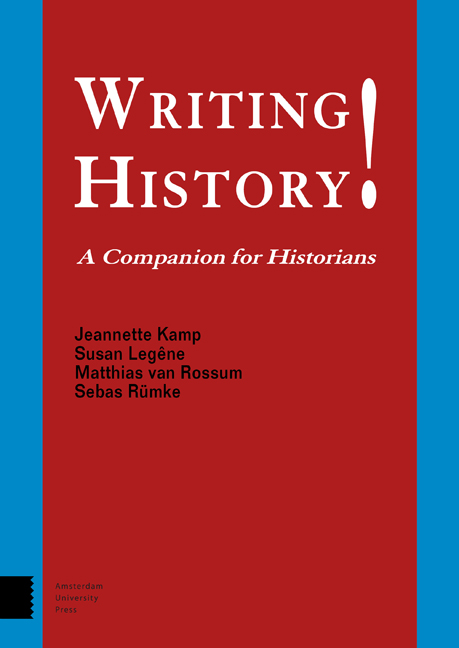Book contents
- Frontmatter
- Contents
- Introduction
- Structure of the Book
- 1 Historical Research: The Importance of the Research Question
- 2 The Building Blocks of the Historical Method
- 3 Applying the Historical Method
- 4 Writing History: Narrative and Argument
- 5 Presentation and Historical Debate
- 6 A Historian – Now What?
- Appendices
- I Guidelines for Notes
- II Other Styles of Notes
- Acknowledgements
- Index
Introduction
- Frontmatter
- Contents
- Introduction
- Structure of the Book
- 1 Historical Research: The Importance of the Research Question
- 2 The Building Blocks of the Historical Method
- 3 Applying the Historical Method
- 4 Writing History: Narrative and Argument
- 5 Presentation and Historical Debate
- 6 A Historian – Now What?
- Appendices
- I Guidelines for Notes
- II Other Styles of Notes
- Acknowledgements
- Index
Summary
Historians do not only know a lot about the past, what we conventionally call history, by writing about it they also make history. By interacting with other historians, both past and present, and in dialogue with the public of their own time they contribute knowledge and insights that help a society to be conscious of its relation to the past. This does not only apply to the history of our most recent times: thinking about history is interesting and relevant from the earliest appearance of the humans as distinctive creatures on this planet. History is about a past that can be constantly approached from countless angles with new ideas, insights and techniques – and that is why there is an exclamation mark in the title of this guide. Writing History! appeals to the ambition to actively explore the possibilities of the discipline and then encourages you to follow your own path.
An important key to writing history is the historical method of source criticism, which is also a recurring subject in this companion. Most historical methods and techniques have been developed through what we would call an ‘analogue’ context: starting from unique archival documents, printed books, collections of objects, visual sources and recorded accounts and stories. However, the rapid developments in information and communication technology as well as digital imaging techniques do have a great deal of influence on the methods and techniques of writing history. They change the access to our sources as the sources themselves acquire a different character. Communication between historians about their results is taking on new forms and archiving is done in new ways. Prospective historians are in the middle of these changes and will help to determine their impact on the historian's craft.
This companion is therefore a 2.0 version – it does not anticipate technological innovations and what the future might hold with respect to using ‘big data’, image recognition, the reconstruction of historical sounds and other developments we can expect. Writing History! is intended to connect the customary academic historical methods and techniques and the digital means that are now available to the historian. IT puts source criticism in a new light.
- Type
- Chapter
- Information
- Writing History!A Companion for Historians, pp. 9 - 10Publisher: Amsterdam University PressPrint publication year: 2018



